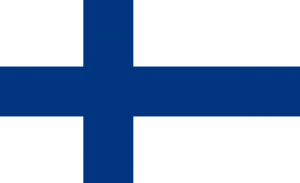Language/Finnish/Grammar/How-to-Use-Be
Hi Finnish learners! 😊
In this lesson, we will learn the basics of using "be" in Finnish language. Understanding how to use "be" is very important because it helps us describe things, places, people, and situations. We'll discuss the present tense, past tense, and future tense. We will also cover how to form questions using "be."
Present Tense[edit | edit source]
In Finnish, the verb "olla" means "to be," and is used as follows:
| Finnish | Pronunciation | English |
|---|---|---|
| olen | [ˈolen] | I am |
| olet | [ˈole̞t̪] | you are (singular informal) |
| on | [o̞n] | he/she/it is |
| olemme | [ˈole̞mːe̞] | we are |
| olette | [o̞ˈlet̪t̪e̞] | you are (plural/formal) |
| ovat | [ˈovɑt̪] | they are |
For example:
- Minä olen suomalainen. (I am Finnish.)
- Sinä olet korkea. (You are tall.)
- Hän on onnellinen. (He/she/it is happy.)
- Me olemme ystäviä. (We are friends.)
- Te olette kiireisiä. (You all are busy.)
- He ovat nälkäisiä. (They are hungry.)
Past Tense[edit | edit source]
To form the past tense, we use the verb "olla" in the third person singular form "oli" and add the suffix "-nut/-nyt" to the end of the main verb. For example:
- Minä olin kotona eilen. (I was at home yesterday.)
- Sinä olit jalkapallokentällä eilen. (You were at the soccer field yesterday.)
- Hän oli kipeä viime viikolla. (He/she/it was sick last week.)
- Me olimme lomalla viime kuussa. (We were on vacation last month.)
- Te olitte töissä eilen. (You all were at work yesterday.)
- He olivat koulussa aamulla. (They were at school in the morning.)
Let's see some examples in context:
- Person 1: Missä olit eilen? (Where were you yesterday?)
- Person 2: Olin kirjastossa. (I was at the library.)
- Person 1: Mitä sinä teit viikonloppuna? (What did you do last weekend?)
- Person 2: Olimme mökillä. (We were at the summer cottage.)
Future Tense[edit | edit source]
To form the future tense, we use the verb "olla" in the third person singular form "on" in combination with the infinitive form of the main verb. For example:
- Minä olen menossa kaupungille. (I am going to the city.)
- Sinä olet aloittamassa uutta työtä. (You are starting a new job.)
- Hän on matkustamassa Ranskaan huomenna. (He/she/it is going to travel to France tomorrow.)
- Me olemme suunnittelemassa lomaa. (We are planning a vacation.)
- Te olette odottamassa bussia. (You all are waiting for the bus.)
- He ovat lähtemässä kävelylle. (They are about to go for a walk.)
Now, let's put some examples in a dialogue:
- Person 1: Mitä sinä teet tänä viikonloppuna? (What are you doing this weekend?)
- Person 2: Menen kaverin syntymäpäiville. (I'm going to my friend's birthday party.)
- Person 1: Oletteko menossa lomalle tänä vuonna? (Are you going on vacation this year?)
- Person 2: Kyllä, suunnittelemme matkaa Kreikkaan. (Yes, we're planning a trip to Greece.)
Asking Questions[edit | edit source]
To form questions using "be," we simply switch the order of the subject and the verb "olla." For example:
- Oletko sinä nälkäinen? (Are you hungry?)
- Onko hän suomalainen? (Is he/she/it Finnish?)
- Olemmeko me myöhässä? (Are we late?)
To ask about the past, we use the helping verb "ollut" and switch its position with the subject. For example:
- Oliko sinulla hauskaa? (Did you have fun?)
- Oliko hän kotona? (Was he/she/it at home?)
- Olivatko he ystäviä? (Were they friends?)
To ask about the future, we use the same structure as in the present tense:
- Oletko menossa festareille? (Are you going to the festival?)
- Onko hän matkustamassa ulkomaille? (Is he/she/it going to travel abroad?)
- Ovatko he lähtemässä piknikille? (Are they about to go for a picnic?)
Remember, practice makes perfect! To improve your Finnish Grammar, you can also use the Polyglot Club website. Find native speakers and ask them any questions!
➡ If you have any questions, please ask them in the comments section below.
➡ Feel free to edit this wiki page if you think it can be improved. 😎

